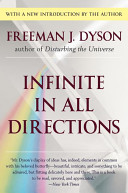Resistance to World Government
The case for World Government as Hamilton and Einstein presented it is logically compelling. Fortunately or unfortunately, World Government has a fatal defect. Nobody wants it. At the time when Einstein preached World Government most seriously, he was bitterly attacked by Soviet scientific colleagues as well as by patriotic American politicians. "By the irony of fate," the Soviet scientists proclaimed, "Einstein has virtually become a supporter of the schemes and ambitions of the bitterest foes of peace and international cooperation." At the same time the conservative American press was portraying Einstein as a dupe of Soviet propaganda. The idea of World Government had a unique ability to unite the patriots of all countries against it. It was simultaneously seen as a capitalist plot by the Communists and as a Communist plot by the capitalists.
In the thirty years since Einstein died, the prospects for World Government have not improved. On the contrary, the liberation of the colonial empires and the emergence of a hundred new independent countries has made the spirit of nationalism even stronger and more pervasive than before. The new countries, having in many cases achieved their independence by hard fighting, are not likely to surrender it to a {207} supranational authority in which the old colonial masters play a major role. And the old countries of Europe are not likely to surrender their sovereignty to an authority in which they are permanently outvoted by Asians and Africans. The disparities of interest and culture between North and South are an even greater obstacle to World Government than the disparities between Communists and capitalists.
So World Government is not a road to peace, at least for the next few centuries. The human species values its diversity too highly. If we are to find a practical road to peace, we must not try to abolish nationalism. We must try instead to make nationalism an ally in the search for peace. This means that we have to create an international order in which national pride and national power are put to constructive use. National power must be the instrument by which stability of the international order is achieved. We are then driven back to the old concept of a balance of power. National power must be balanced in a stable equilibrium. Nations must be strong enough to defend their own territory but not strong enough to be tempted by dreams of conquest. The historic problem of international diplomacy has been to create a political framework within which a stable balance of power could be maintained. Over the centuries, this problem has rarely been solved. The balance of power has been hard to achieve, and harder still to maintain over long periods of time. Europe has been the area of the world in which the balance of power has been most assiduously pursued, and Europe has also been for centuries the scene of the greatest and most destructive wars. The history of Europe proves conclusively that the balance of power will not be stable if the behavior of nations continues to follow the patterns of the past. The patterns of the past include such characters as Napoleon, Bismarck and Hitler. Alexander Hamilton would not have been surprised by the appearance of such characters. He told us, before they appeared to disturb the peace of Europe, that men are ambitious, vindictive and rapacious. If we are to avoid great wars in the future, the patterns of our behavior must change. {208}
Notes:
Folksonomies: war peace world government
Taxonomies:
/law, govt and politics/government (0.440514)
/society/unrest and war (0.350098)
/travel/tourist destinations/europe (0.270758)
Keywords:
World Government (0.970983 (negative:-0.095432)), national power (0.746898 (positive:0.565204)), Soviet scientific colleagues (0.719749 (neutral:0.000000)), patriotic American politicians (0.711706 (neutral:0.000000)), conservative American press (0.694631 (negative:-0.550271)), new independent countries (0.689987 (negative:-0.349481)), international order (0.689429 (positive:0.500446)), old colonial masters (0.687094 (negative:-0.269785)), Einstein (0.633919 (positive:0.001568)), Government The case (0.624741 (positive:0.390272)), fatal defect (0.618663 (negative:-0.708276)), Soviet scientists (0.615598 (neutral:0.000000)), Soviet propaganda (0.614785 (negative:-0.550271)), bitterest foes (0.614107 (positive:0.550861)), stable balance (0.613472 (positive:0.477446)), capitalist plot (0.608212 (negative:-0.513280)), supranational authority (0.608045 (negative:-0.269785)), greater obstacle (0.606813 (negative:-0.492399)), human species (0.606615 (positive:0.746370)), major role (0.605974 (negative:-0.269785)), international cooperation (0.605738 (positive:0.550861)), unique ability (0.605704 (neutral:0.000000)), peace (0.604942 (positive:0.184738)), Communist plot (0.604637 (negative:-0.513280)), colonial empires (0.604588 (negative:-0.349481)), stable equilibrium (0.602234 (positive:0.694720)), new countries (0.601073 (neutral:0.000000)), practical road (0.600669 (positive:0.443670)), old countries (0.599994 (negative:-0.200646)), hard fighting (0.599787 (negative:-0.303497))
Entities:
World Government:Organization (0.913104 (negative:-0.217434)), national power:Company (0.754069 (positive:0.353454)), Einstein:Person (0.587551 (positive:0.110799)), Europe:Continent (0.492144 (negative:-0.286708)), Alexander Hamilton:Person (0.351694 (positive:0.055732)), Napoleon:Person (0.233011 (neutral:0.000000)), Hitler:Person (0.211152 (neutral:0.000000)), thirty years:Quantity (0.211152 (neutral:0.000000))
Concepts:
International relations (0.978236): dbpedia | freebase | opencyc
Europe (0.800928): dbpedia | freebase | yago
Nationalism (0.774841): dbpedia | freebase | opencyc
Superpower (0.759572): dbpedia | freebase | opencyc
Nation (0.709695): dbpedia | freebase
Communism (0.667127): dbpedia | freebase | opencyc
Marxism (0.643571): dbpedia | freebase | opencyc | yago
Asia (0.633451): dbpedia | freebase | yago





